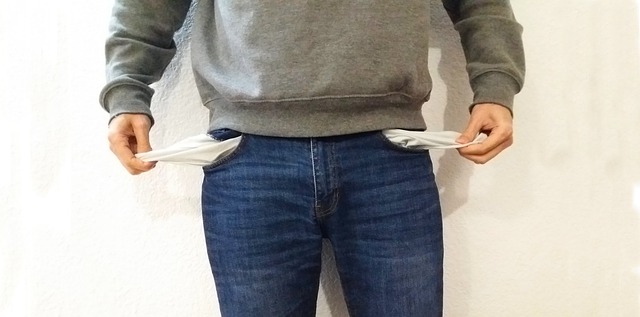Debt payment can be a complicated thing. You may be on either or both sides of the situation: the accidental creditor who lends someone money you’re supposed to spend on something else OR the person in distress and wants to borrow money for a particular need.
For most people, asking someone — a friend or a family relative — to loan money is a deeply humiliating experience. Borrowing money is usually the last resort when they run out of options; doing so makes them look and feel like failures. There is also a common connotation that those who borrow money are lazy and want an easy way to solve their problems, instead of being victims of certain circumstances, so that perception exists in most, if not all, those who borrow money.
Although it’s a verbal agreement, there is a responsibility for someone to honor a promise and settle debt payment at a prescribed time. So why do people who owe you money get mad when you ask them to fulfill an agreement?

Table of Contents
Being helpless to pay adds pressure
Ideally, the borrowed money gets returned before the agreed time to pay it back. However, in most cases, it’s not happening.
So when debtors receive a reminder to settle their obligations — assuming they continue to struggle to cover their day-to-day expenses — they also receive the reminder about being hopeless and guilty of bothering other people to settle their problems. They probably want to pay off the loan and avoid the reminder, but they can’t. So the reminder adds pressure.
Being asked to pay hits the debtor’s ego deeply
We all maintain that level of reputation. It, therefore, hits a borrower’s pride to be told to pay, no matter how gentle it is being delivered and how the reminder is carefully worded. When you ask them when he or she is going to be able to repay you, the borrower is angry at himself/herself for being in such a situation. You asking them makes them feel awful about themselves. Getting angry is an emotional tactic intuitively used to get you to “back off.”
Unless the borrower is ready to earn that reputation as someone notorious for not paying debts, he or she strives to pay off the loan. Otherwise, it’s pride that takes over and recreates the situation that the borrower is the one being oppressed and the creditor is one that’s heartless and inconsiderate.
Borrowers accuse creditors of lack of trust
Asking somebody about owed money can insinuate that you do not trust him/her. This person may already be aware that you lending the money is a sign that you trust this person so this reasoning may just be a defense mechanism for you to stop pestering him or her into settling owed money.

At this point, the level of the relationship enters a tense situation. Many friendships and family relationships have been strained because of unpaid loans. There needs to be a balancing act from both parties. From the part of the borrower, there is a clear responsibility to pay back the money to maintain that level of trustworthiness in spite of a tough situation. From the lender’s perspective, there is understanding and empathy towards someone who is in a tough financial situation.
Why do you need to pay back borrowed money?
This question doesn’t need to be asked, but for the sake of clarity and broader perspective, it needs to be elaborated further.
By lending you the money the creditor also sacrificed something
Your friend may have allocated this money towards a personal project, additional investment, or personal reward for an accomplishment. But he chose to forgo the plan and instead lent you the money. That sacrifice was made out of goodwill and generosity to do you a favor. How fortunate you are to have this friend. Now, paying back on time or at least being transparent about your dire situation is a clear manifestation of your gratitude to his kindness.
If you fail to pay and use the above reasons to get mad at this friend for asking you when can you pay him back, it likely discourages him from repeating the same act of kindness to others. He now fears his gesture will result in the same outcome if he lets someone else borrow money.
Your name and reputation is at stake
Do you want to be known in the neighborhood, at your church group, or in the office as “someone who is delinquent in repaying debt“? We all want to be trusted and have our name associated with positive attributes. Now, if we avoid a church mate, officemate, or neighbor because we owe her money, we are tempting this person to share her experience and warn everyone not to lend you money.
If we like a product or service, we happily recommend them to friends. But if we feel awful about something we also tell others so they’ll avoid the product or services. Sadly, your name and reputation could easily fall into the latter if you don’t settle your financial obligation.
Avoiding payment risks a ruined relationship
Your friend who lent you money may sound like he doesn’t need it back immediately because of his current fiscal power. But for you to renege an agreement is a betrayal of trust that can potentially ruin a relationship. Since lending money without a written contract usually happens between friends or family that know each other too well, trust is the paramount reason behind the transaction. The lender has already done his or her part, now it’s the borrower’s turn to return the favor and fulfill the promise.
In case you can’t pay your friend at a promised time, don’t avoid her. Instead, be proactive and renegotiate when you can repay (next week, next month, etc) and in what terms (instead of paying in two installments, you’ll pay in three). You don’t want to ruin a friendship just because of the money you owed. And you don’t want to lose one friend who could lend you money again during tough times in the future.
Always find a way to pay your debt back, not a reason why you can’t.
When you should not borrow money
Avoid borrowing money if possible. Although friends may lend you small amounts with no interest, borrowing money can create a habit that can be catastrophic later on. But in case you are borrowing money to finance a proven business or investment that will pay back a loan, this is a good avenue to seek capital.
It is understandable to borrow money during a medical emergency and other reasons beyond our control. But there are two instances when you should not use borrowed money to acquire them.
Items that do not yield returns
This includes gadgets, jewelry, clothing, gifts, and personal items. These are items that need to be bought using a monthly budget after deducting savings. Even if the jewelry is considered an investment that can be pawned in the future, its depreciation value is up to the pawnshop who will dictate not up to you.
Travel
Travel is a wonderful experience that teaches us lessons and creates a treasure trove of memories that lasts a lifetime. But it doesn’t mean we need to borrow money from the bank to finance our next adventure.
Conclusion
Borrowing money is an option that we should consider as a last resort. Our fiscal discipline allows us to save money, build our savings, and create investment vehicles from our existing streams of income. When we borrow money, we should be aware and conscious of our ability to repay it, where we will source our repayment, and in what terms that are feasible for us and agreeable between us and our lender.
Failure to pay debts must be avoided. Otherwise, the consequences are even more troublesome than before you were handed the borrowed money.








